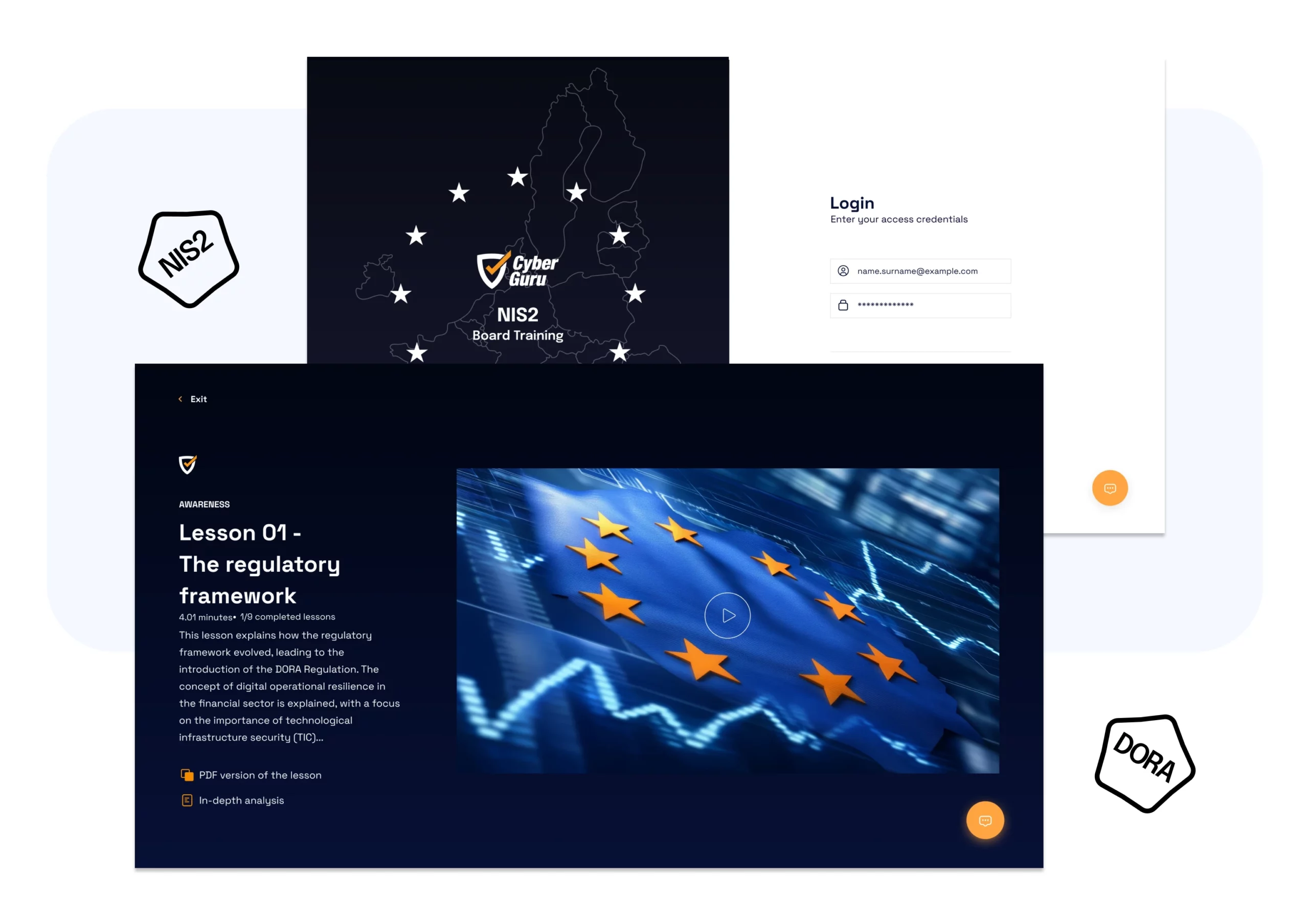NIS2 Just Landed in the Boardroom. Is Your Board Ready?
A CISO’s Guide to Preventing Cybersecurity Meltdowns (and Awkward Questions)
Cybersecurity used to be something that anyone in your organization would happily pass down the hall to IT. But with the EU’s new NIS2 regulation, it’s officially landed on your board’s desk – and ignorance isn’t bliss. Board members can no longer shrug cybersecurity away, because when something goes wrong, the fines (and embarrassment) come straight to the top.
This shift isn’t isolated to the EU. In the U.S., the Securities and Exchange Commission (SEC) introduced cybersecurity disclosure rules requiring publicly traded companies to outline board-level cybersecurity responsibilities.
Clearly, boards worldwide now have mandatory cybersecurity responsibilities, making your role as a CISO in educating and guiding them more critical than ever.
Your Role as a CISO Has Just Expanded
NIS2 places explicit cybersecurity accountability on board members and senior executives. That expands your responsibilities beyond managing technical risks to educating and guiding senior leaders. You’ll be the critical bridge translating complex cybersecurity concepts into language your board can act upon.
Your board now relies on you to understand:
- What NIS2 requires from them personally and professionally.
- The practical consequences of non-compliance including penalties.
- How cybersecurity aligns with the organisation’s overall strategy and risk management approach.
You’ll need clear, structured training and communications strategies to ensure board members can confidently fulfill their new obligations.
NIS2: The EU’s Way of Making Cybersecurity Your Board’s Problem
The NIS2 Directive (EU Directive 2022/2555), aims to enhance cybersecurity across the EU by establishing a high common level of security for network and information systems. It expands upon the original NIS Directive by broadening its scope to include more critical sectors and introducing stricter supervisory measures, enforcement requirements, and penalties.
Entities classified as “essential” or “important” under NIS2 are now subject to rigorous cybersecurity risk management and reporting obligations. However, NIS2 also explicitly extends its scope beyond these primary entities, emphasising the cybersecurity obligations placed upon their supply chain.
This means that service providers, vendors, suppliers, and other third-party partners must comply with cybersecurity standards equivalent to those of the essential entities they serve, creating a robust, interconnected cybersecurity framework across the entire supply chain.
Supporting Your Board: From Oversight to Accountability
With NIS2, board members and senior executives aren’t just overseeing cybersecurity – they’re directly accountable. That means they’ll need your help with their new responsibilities, including:
- Understanding cyber risks: Board members don’t need to be technical experts, but they must grasp enough about cybersecurity to recognise and manage business-critical threats.
- Embedding Cybersecurity in Strategic Planning: Cybersecurity should become a regular strategic agenda item. You’ll need to help your board integrate cyber risk discussions into broader strategic and operational decisions.
- Ensuring Clear and Effective Communication: You’ll support your board in establishing straightforward processes for reporting cybersecurity risks and incidents, making sure that critical information is escalated quickly and appropriately.
Think Cybersecurity’s Expensive? Try Non-Compliance
Part of your new advisory role is making your board aware of the consequences of non-compliance.
The EU is taking NIS2 seriously. Companies that fail to meet these requirements face hefty penalties. Specifically, non-compliant companies could be fined up to €10 million or 2% of their global annual revenue, whichever is higher.
Beyond financial penalties, board members may face personal liability. This could mean reputational damage, dismissal, or other personal consequences for board members who fail to fulfil their cybersecurity responsibilities.
Awareness Training: Because Executives Click Suspicious Links Too!
The NIS2 regulation explicitly mentions training as a mandatory requirement. Article 20 requires board members to attend training to understand cybersecurity well enough to make informed decisions. Similarly, Article 21 requires companies to regularly train their broader workforce to manage everyday cyber risks.
Your job now includes ensuring the board clearly understands cybersecurity risks. Training helps build a unified organisational culture – starting at the top and reaching every employee – making your company less vulnerable to cyber threats.
Is Your Supply Chain Your Weakest Cybersecurity Link?
NIS2 doesn’t stop at your company’s front door. It requires your organisation to pay close attention to your supply chain. You’ll help your board understand that supplier cybersecurity is no longer optional. Organizations must ensure that third-party vendors and service providers meet cybersecurity standards at least as strong as their own.
You’ll need clear processes for:
- Performing regular cybersecurity assessments of key suppliers.
- Defining explicit cybersecurity expectations in contracts.
- Regularly monitoring and ensuring compliance within your supply chain.
Your board needs to understand why supplier cybersecurity isn’t just about compliance – it’s essential to protect your organisation’s wider reputation and financial health.
How Cyber Guru Can Make Your Job Easier
At Cyber Guru we know that CISOs now carry the additional responsibility of guiding their boards through NIS2 compliance. To make this easier, we’ve developed the NIS2 Board Training specifically for board members and senior executives in both public and private organisations.
Cyber Guru’s NIS2 Board Training programme helps you:
- Clearly communicate board-level cybersecurity obligations without overwhelming technical detail.
- Quickly educate your board through practical, relevant, real-world scenarios and case studies.
- Deliver flexible, online training modules that board members can complete at their own pace
Our approach allows you, as a CISO, to concentrate on proactive cybersecurity management rather than being caught up in ongoing fundamental compliance education.
Final Thoughts: From Cybersecurity Leader to Trusted Board Advisor
NIS2 makes it clear that cybersecurity is no longer something that can be delegated entirely to IT or security departments. The responsibility now sits squarely at the boardroom table. The goal is straightforward: create organisations that understand and manage cyber risks effectively from the top down.
NIS2 has also changed your role as a CISO. You’re now not only a cybersecurity leader but also a trusted board advisor. Your expertise is essential for enabling board members to successfully meet their new cybersecurity responsibilities.
We are here to help make this transition smoother for both you and your board.
Ready to get started?
Book a demo today, or schedule a call to discuss how Cyber Guru can help you effectively prepare your board for NIS2 compliance.







